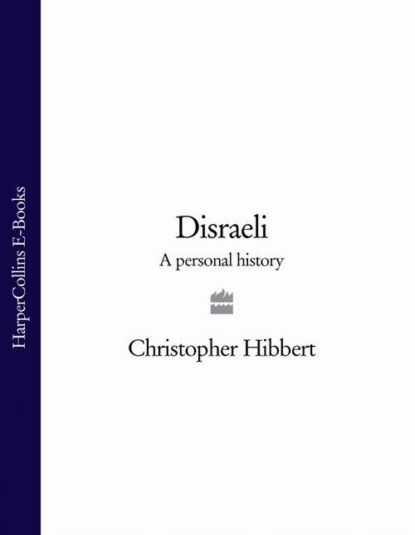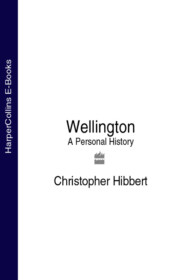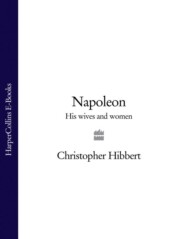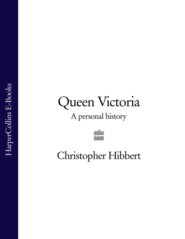По всем вопросам обращайтесь на: info@litportal.ru
(©) 2003-2024.
✖
Disraeli: A Personal History
Настройки чтения
Размер шрифта
Высота строк
Поля
39 THE LAST ACT (#litres_trial_promo)
40 ‘A WISE AND WORLDLY MAN’ (#litres_trial_promo)
REFERENCES (#litres_trial_promo)
SOURCES (#litres_trial_promo)
INDEX (#litres_trial_promo)
Acknowledgements (#litres_trial_promo)
About the Author (#litres_trial_promo)
Praise (#litres_trial_promo)
By the same author (#litres_trial_promo)
Copyright (#litres_trial_promo)
About the Publisher (#litres_trial_promo)
PART ONE 1804–46 (#ulink_6c08b368-e19b-5a9e-be5a-a48d304b58cd)
1 BOYHOOD (#ulink_0423e877-109a-5abc-aacc-8f37804bce73)
‘He had a taste, not uncommon among schoolboys, for little acts of bargaining and merchandise.’
IN CONVERSATION WITH HIS FRIEND, Lord Barrington, Benjamin Disraeli once observed, ‘I was born in a set of chambers in the Adelphi
– I may say in a library, for all my father’s rooms were full of books.’ Like many of the accounts he gave in later years of his family, his childhood and youth, this was not, in fact, true. His father’s rooms were certainly full of books, which Isaac D’Israeli, a bibliophile if not a great scholar, would take pleasure in arranging and rearranging, constantly adding to his collection until it numbered no fewer than twenty-five thousand volumes, taking notes from them on scraps of paper which he would tuck between their leaves, peering at the print shortsightedly, his eyes behind thick spectacles, his chin concealed behind the folds of his white neckcloth, a small black velvet cap over his long curly hair, emerging from his library to talk loquaciously and disjointedly over his meals.
His eldest son, Benjamin, was not, however, born in these chambers in the Adelphi which the Adam brothers had built on land granted to them by the Duke of St Albans not long before. Isaac D’Israeli had lived there as a bachelor; but, not long after his marriage, he had moved to Bloomsbury, to 6 King’s Road, Bedford Row, now 22 Theobald’s Road, and it was here, in a house overlooking Gray’s Inn Garden, that Benjamin was born at half past five on the morning of 21 December 1804.
On the eighth day of his life, a large group of men in black hats and morning coats assembled at 6 King’s Road for the celebration of the brit milah, the circumcision. The baby was placed on one of the two ceremonial chairs which had been brought over from the Bevis Marks synagogue, the other being occupied by the baby’s paternal grandfather. The mohel, the child’s uncle, then performed the operation. After prayers had been said, the baby was returned to the women, who were waiting with coffee, wine, tea and cakes in a nearby room. Here also was Benjamin’s small sister, Sarah, whose second birthday was to be celebrated the following day.
(#litres_trial_promo)
For these relations Benjamin was to provide an exotic and largely fictitious ancestry. They were, he liked to think and to say, of Italian descent ‘from one of those Hebrew families whom the Inquisition forced to emigrate from the Spanish Peninsula at the end of the fifteenth century, and who found a refuge in the more tolerant territories of the Venetian republic…They assumed the name of DISRAELI, a name never borne before, or since, by any other family, in order that their race might be for ever recognised…They flourished as merchants for more than two centuries under the protection of the Lion of St Mark.’
(#litres_trial_promo)
Proud of his Jewish ancestry, Disraeli, in his novel, Contarini Fleming, was to ask if the ‘mixed population of Saxons and Normans, among whom he had first seen the light of day, was of purer blood than he? Oh no, he was descended in a direct line from one of the oldest races in the world, from that rigidly separate and unmixed Bedouin race who had developed a high civilization at a time when the inhabitants of England were going half-naked and eating acorns in their woods.’
What at least could be said for certain about his forebears was that Disraeli’s grandfather, also Benjamin, and spelling the name D’Israeli, came to England at the age of eighteen in 1748, the twenty-first year of the reign of King George II, leaving behind two sisters who presided over a school for fellow-Jews in the Venetian ghetto.
A bright young man, Benjamin D’Israeli soon found employment in a Jewish firm in Fenchurch Street which imported goods from Italy. After working for this firm for some years, he married a Spanish Jewess – whose family, so his grandson liked to suppose, was far more distinguished than it was – and, soon afterwards, he set up his own business as an importer of coral and of those fashionable straw hats from Leghorn so often to be seen in portraits of young ladies by Thomas Gainsborough.
His wife having died in 1764, Benjamin D’Israeli married again within four months and, as with the first wife, his grandson chose to ascribe to the second a more distinguished lineage than she possessed. She was a grumpy, dispiriting woman and her grandson – comparing her to those imperious women, Catherine the Great, Sarah, Duchess of Marlborough and the loftily intimidating Frances Anne, Marchioness of Londonderry – ever afterwards recalled the dreaded weekly visits to her house where there was ‘no kindness, no tea, no tips – nothing’. In her eighty-third year she came to stay in her son’s house and behaved in a kindly manner that astonished all. ‘Depend upon it,’ her daughter-in-law suggested with well-founded prescience, ‘she is going to die.’
After an initially unsuccessful diversification of his business into that of financial speculation, Benjamin D’Israeli became sufficiently prosperous as a stockbroker to buy an impressive country house, attributed to Sir Christopher Wren, at Enfield, where his grandson described him as eating macaroni with his dear friend Sir Horace Mann, for forty-six years British envoy at Florence, although, in fact, the Mann referred to was Sir Horace’s nephew and heir, Horatio, Member of Parliament for Sandwich.
After a contented life, which would have been even more so had not his second wife been almost as difficult and demanding as his first, Benjamin D’Israeli, known to his neighbours as ‘Old Mr Israel’, died in 1816, leaving what was then an extremely large fortune of £35,000 which, in today’s terms, would have been worth well over £1 million.
His only son, Isaac D’Israeli, was then forty years old. He had been a difficult, rather morose child, showing little or no interest in his father’s business and apparently, on one occasion, had run away from home and been found lying on a tombstone in Hackney churchyard. His kindly father, profoundly relieved, hugged him and gave him a pony, much, no doubt, to the annoyance of his stricter mother who firmly believed that to spare the rod was to spoil the child.
(#litres_trial_promo) It was evidently through her influence that the boy was taken away from the school near his family’s house at Enfield and sent to work in the counting-house of his father’s agent in Amsterdam and thence to a firm in Bordeaux. Having shown not the least aptitude for business, taking no interest in politics which he claimed not to understand, and, in the words of his son, Benjamin, being ‘lost in reverie and…seeking no better company than a book’, he declared that he had written a poem celebrating the evils of business and that he had decided to become a man of letters, despite the ridicule which his mother poured upon the idea. The death of his maternal grandmother, who bequeathed him a handsome legacy, enabled him to fulfil his ambition.
(#litres_trial_promo)
He was certainly industrious and, despite the diffidence of his manner, assuming. He left one of his poems at Bolt Court for the approval of Samuel Johnson, who was too ill to take notice of it; he approached Vicesimus Knox, master of Tonbridge Grammar School, with the suggestion that he might become a clerkly member of his household in the medieval manner; he sent examples of his work to the topographer and antiquary, Richard Gough; he sought the patronage of Henry James Pye, the future Poet Laureate, whose talents, slender as they were, had been recognized by the Prime Minister, William Pitt, for his support in the House of Commons; and he made the acquaintance of Samuel Rogers, the witty poet and generous host. He also met the antiquary, Francis Douce, on one of his regular visits to the British Museum.
Poems and plays, novels, short stories, oriental romances, satires, biographies and book reviews flowed from his pen as well as publications with such titles as An Essay on the Literary Character; A Dissertation on Anecdotes; Miscellanies or Literary Recollections; Calamities of Authors; Genius of Judaism, and Curiosities of Literature. This last, a collection of sketches, anecdotes and brief essays on all manner of subjects from ‘Men of Genius Deficient in Conversation’ to ‘The Custom of Saluting after Sneezing’, was the most successful of all his books and was reissued in its twelfth edition in 1841.
Samuel Rogers said of him, ‘There is a man with only half an intellect who writes books that must live’;
(#litres_trial_promo) and, while never renowned for his wit or striking intelligence, Isaac D’Israeli was a welcome enough guest at such dinner tables as that of the publisher, John Murray, while Sir Walter Scott flattered and astonished him by repeating some of his verses when first introduced to him.
Byron was another admirer. Having read Quarrels of Authors, he described it as being ‘most entertaining’; and he told Murray, after reading and annotating a copy of the diligent author’s Essay on the Literary Character, ‘I have a great respect for Israeli and his talents, and have been amused by them greatly and instructed often…I don’t know a living man’s book I have taken up so often or lay down more reluctantly than Israeli’s.’
When the two men first met, Byron treated him with so much respect that D’Israeli thought he was being teased. ‘The fact is’, he wrote complacently, ‘that my works being all about literary men were exceedingly interesting to him. They contained knowledge that he could get nowhere else. It was all new to him.’
(#litres_trial_promo)
By the time of the appearance of the twelfth edition of Curiosities of Literature, Isaac D’Israeli had become an easily recognized figure in the streets of Bloomsbury. Some years before, an American author, who saw him from time to time in the British Museum, described him as being ‘a dapper little gentleman in bright coloured clothes, with a chirping, gossipy expression of countenance, who had all the appearance of an author on good terms with his bookseller’.
He was also by then a contented family man. At the age of thirty-five he had married Maria Basevi, the pretty daughter of an Italian Jew, a merchant in a good way of business, who had come to England from Verona in 1762. Maria’s mother was of distinguished Jewish stock, one of whose illustrious forebears was a leader of the great exodus of his race from Spain in 1492. Maria’s son, Ben, was extremely proud of his Jewish ancestry, considering himself of highly aristocratic birth, exaggerating, in a characteristically romantic way, the family’s past glories and – unaware of his mother’s distinguished descent – making unwarranted claims for that of his father.
(#litres_trial_promo)
His mother’s nephew was George Basevi, the architect, whose works included the Fitzwilliam Museum at Cambridge and large parts of Belgravia in London which his cousin, Benjamin Disraeli, was unfairly to condemn as being ‘as monotonous as Marylebone, and so contrived as to be at the same time insipid and tawdry’.
Maria D’Israeli’s first child, Sarah, was born in December 1802; two years later came Benjamin, then three more boys, none of whom became in any way distinguished. Napthali died in infancy; Ralph, five years younger than Benjamin, was born in 1809; James, known as Jem, born in 1813, was almost ten years younger.
Benjamin had little in common with either of these two surviving brothers. To his sister, however, he was as devoted as she was to him; and he was to write to her with a fond and frank intimacy which endured until her death.
Benjamin was also deeply and unreservedly attached to his father, of whom he wrote affectionately, ‘He was a complete literary character…Even marriage produced no change; he rose to enter the chamber where he lived alone with his books, and at night his lamp was ever lit within the same walls…He disliked business, and he never required relaxation…If he entered a club, it was only to go into the library. In the country he scarcely ever left his room but to saunter in abstraction upon a terrace, muse over a chapter, or coin a sentence.’
(#litres_trial_promo)
When he was six years old, Benjamin was sent to a school in Islington kept by a Miss Roper; and from there he went to a school in Blackheath kept by a nonconformist minister, John Potticary, who numbered several Quakers among his pupils as well as at least one Jew with whom Benjamin was required to stand at the back of the class during Christian prayers. On Saturdays these two Jewish boys were also singled out to receive instruction from a Hebrew rabbi. At the end of term, so one of his fellow pupils said, ‘Disraeli went home for the holidays in the basket of the Blackheath coach, [firing] away at the passers-by with his peashooter’.
(#litres_trial_promo)
There is no record of Benjamin’s father having objected to his son’s instruction in the faith of his ancestors by the rabbi at Blackheath. But when, in 1813, Isaac was elected warden of the Bevis Marks synagogue, he declined to take office. A fine of £40 was imposed, he refused to pay it, requiring the elders to accept that ‘a person who had lived out of the sphere of [their] observations, of retired habits of life who [could] never unite in [their] public worship, because, as now conducted, it disturbed instead of excited religious emotions…Such a man never could accept the solemn function of an elder of your congregation’.
Having broken with the synagogue, Isaac might well have allowed the matter to rest there, content for his son to be the non-practising Jew that he was himself. But a friend, Sharon Turner, a fellow frequenter of the British Museum, a solicitor, historian, devout Anglican and adviser on legal matters to the publisher John Murray, persuaded him to allow his four children to be baptised. The ceremony of baptism accordingly took place at St Andrew’s, Holborn on the last day of July 1817. Benjamin was then twelve years old.
His brothers were to go to Winchester, the public school founded in 1382 by William of Wykeham; and it seems that their father would have liked his eldest son to go to Eton. But it was, perhaps, as with the mother in Vivian Grey, that Ben’s mother – being ‘one of those women whom nothing in the world can persuade that a public school is anything but a place where boys are roasted alive’ – was firmly against this proposal and, as was commonly the case, her views prevailed. So Benjamin was sent instead to Higham Hall, a school near Walthamstow in Epping Forest which was kept by the nonconformist minister and Greek scholar, the Revd Eli Cogan, and at which, as at all similar schools in those days, the classics, with a little arithmetic, formed almost the only, and certainly the main, subject on the curriculum.









